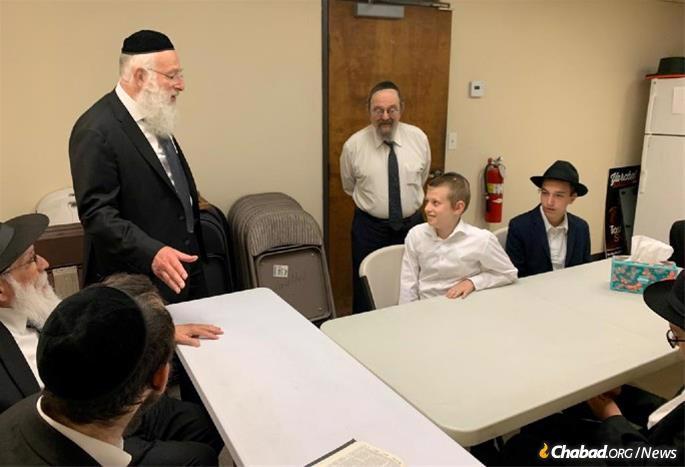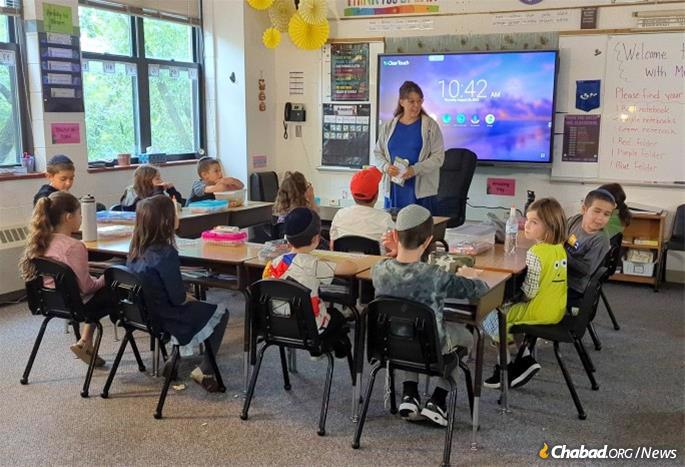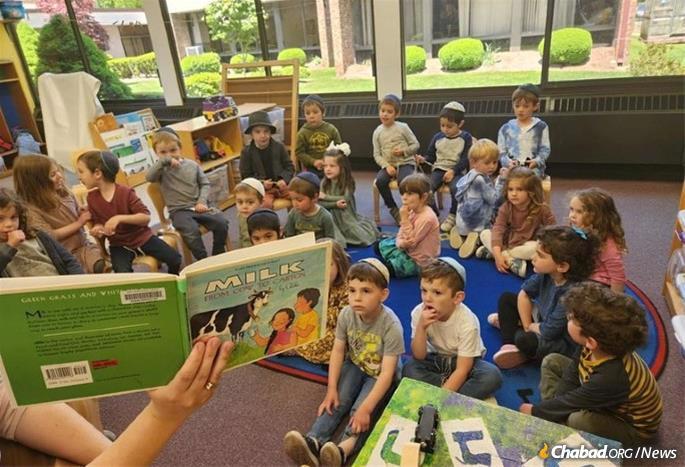
An Unlikely Group of California Boys Praised for Mastering the Talmud
by Rochel Horowitz – chabad.org
Believe it or not, some 14-year-old boys might like sports and swimming, but say they enjoy discussing perjured witnesses, biblical cities of refuge and the functions of Jewish courts even more. That’s why some of California’s leading rabbis and educators were “spellbound and blown away” by a diverse group of eighth graders from the Sacramento suburb of Roseville, Calif., who were tested on their knowledge of the Talmud tractate Makkot.
Mastery of the Talmud has been the cornerstone of advanced Jewish learning for almost 2,000 years. What makes this group different is that they are part of a community-based California school whose students include both those with little prior exposure to Jewish study and traditions and children from Torah-observant families. In addition to the advanced Jewish studies, the school includes a rigorous general studies curriculum.
Student Eden Ha, who joined the Chabad-Lubavitch Sacramento Jewish Academy three years ago after attending local public schools, participated in the class trip to Los Angeles, where he and four of his classmates were successfully tested on their knowledge by some of California’s most eminent scholars. Reflecting on the experience, Eden tells Chabad.org, “It felt good to complete an entire mesechta (“tractate”). There’s a certain pleasure you get from learning something complex.” He says that the style in which the Gemara speaks—asking a question and not giving the answer right away—”sharpens your mind.”
Mendel Zaklos, an eighth-grade student whose father, Rabbi Chaim Zaklos, teaches the class, says that “finishing the whole mesechta feels like a big accomplishment. Some sections were harder and some easier, but I learned at a pace I felt comfortable with. All I wanted was that we should master the mesechta this year.”
The vibrant community school that the boys enjoy attending started as a humble endeavor more than a decade ago under the guidance of Rabbi Mendy and Dinie Cohen, co-directors of Chabad of Sacramento, to provide local education for their children and the children of other Chabad-Lubavitch emissaries, with the long-term vision of expanding into the community.
Under the leadership of Rabbi Yossi and Malkie Korik, co-directors of Chabad of Roseville, the school today boasts an enrollment of 77 students and has a staff of 15.

“We have created a space where Jewish children from different backgrounds can come together and learn side by side,” says Korik, who also serves as the school’s principal. “Our vision is to provide a nurturing environment that will at once cater to the needs of Chabad families, and also help others discover and embrace their Jewish heritage.”
Korik emphasizes that the school offers personalized tutoring to help newcomers catch up with any necessary skills. The school is determined to cater to the needs of each child, regardless of their background, striving to make Torah education accessible and meaningful to all.

Community-Based Scholarship a National Trend
The experience at the Sacramento Jewish Academy of providing high levels of Jewish scholarship alongside a general-studies curriculum to students from a wide variety of backgrounds exists at many Chabad schools across North America. Rabbi Baruch Kaplan, principal of the Southern Connecticut Hebrew Academy, a community school in Orange, Conn., with a similar dynamic, says: “Our goal is that the community has a school that provides top-notch Jewish education with competitive general education as well.”
Kaplan says that these community schools demonstrate that Jewish education is possible and meaningful in any setting, actualizing the vision of the Rebbe—Rabbi Menachem M. Schneerson, of righteous memory—of spreading Torah and Jewish inspiration to all corners of the world.

In Milwaukee, Wis., the Bader Hillel Academy fosters similar inclusivity. “We see our school as an opportunity for kids to experience many different perspectives and build tolerance and diversity,” explains the school’s principal, Rabbi Shalom Ber Munitz. “The diversity in our school has moved us towards the individualized learning model, where we focus on each child’s needs and create a supportive environment.”
Pointing to the diverse student population in Sacramento, Rabbi Zaklos notes that “we need to be proactive and not sit by passively and wait for Jewish children to somehow be immersed in a wave of Torah and Jewish inspiration. This takes work, but is doable anywhere.”












